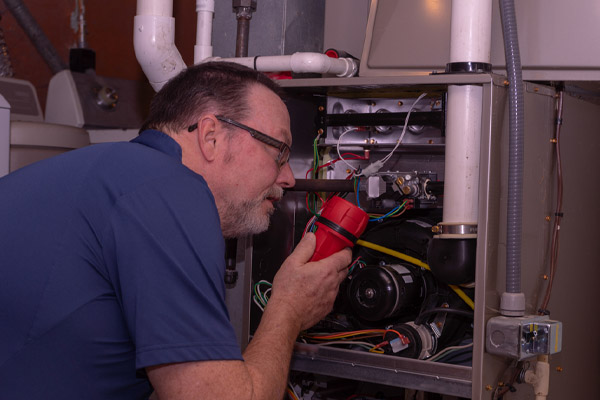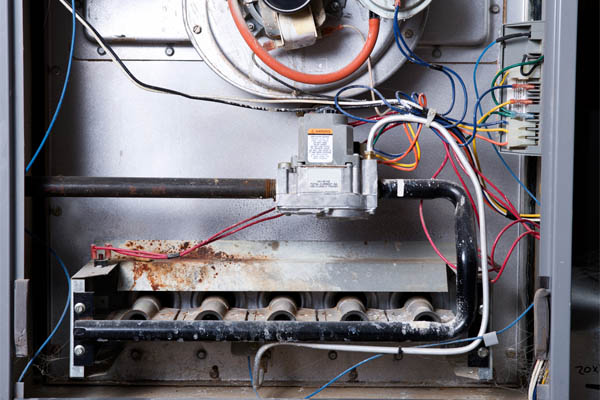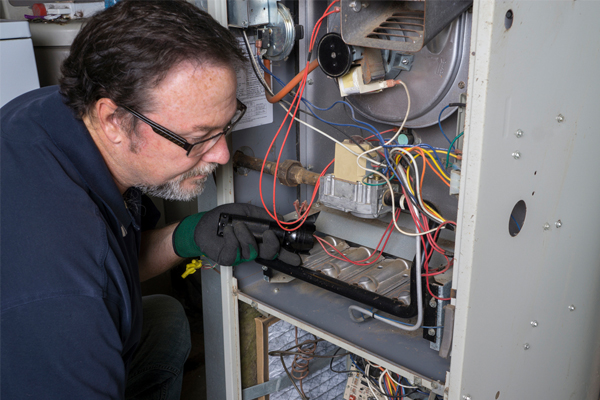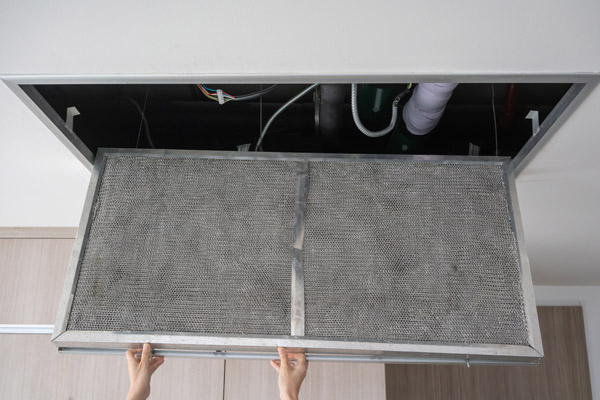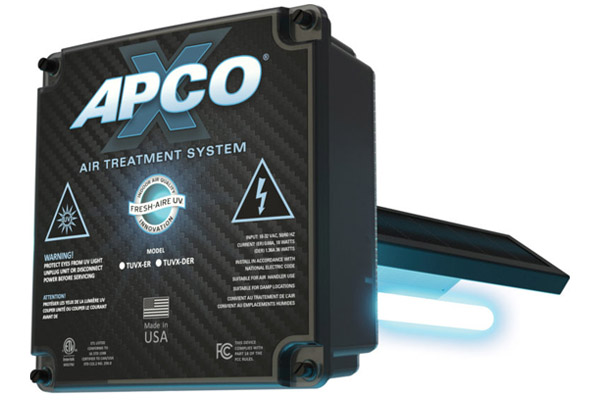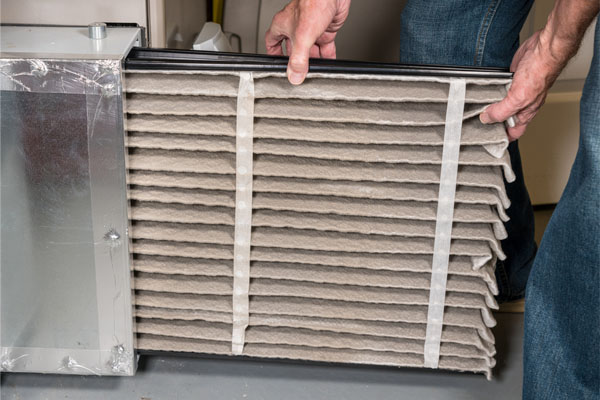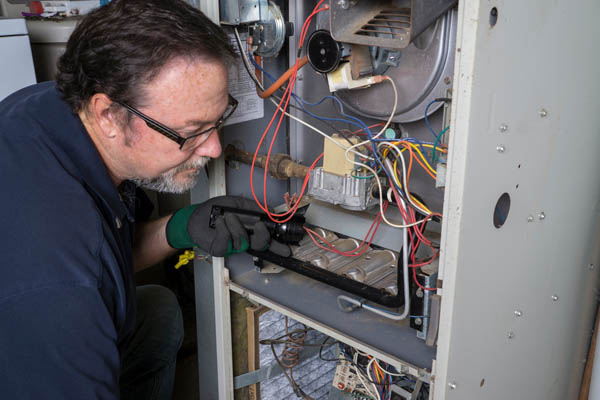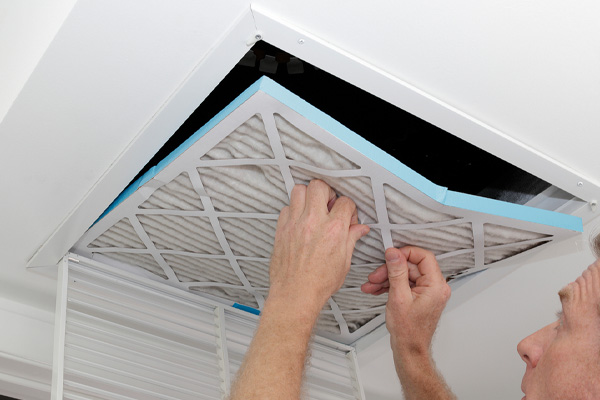
There are millions of homeowners across the country who rely on heating oil to keep their homes warm during the cold days of winter. One aspect that comes from this type of heating is checking the amount of fuel there is in the heating oil tank and scheduling a heating fuel delivery before running out. Heating oil is essential for keeping your home warm and comfortable. However, many people overlook the maintenance necessary for this system.
With so much going on, from family outings, ski trips, and snow removal, keeping up with oil tanks can easily get lost in everyday activities and responsibilities. Unfortunately, this is also the time of year when winter can be at its worst and a full tank of fuel oil is crucial. This oversight often leads to even extremely responsible homeowners running out of oil when the harsh temperatures of winter arrive when they need the oil the most.
There are several causes that could potentially lead to you finding your fuel tank empty. These include:
- Stolen fuel
- A problematic tank system
- Not having the money to purchase a new oil delivery
- Failure to keep monitoring oil levels during the year
Regardless of the reason, running out of home heating oil can be a very frustrating experience and impacts your day-to-day life and wellbeing. However, it doesn’t have to be a huge problem to prevent this type of situation. By understanding potential risks involved in your fuel running out, you can ensure that the tank remains full year-round by taking some simple measures to avoid having a fuel tank that is empty.
Why It’s Important That Your Heating Oil Doesn’t Run Out
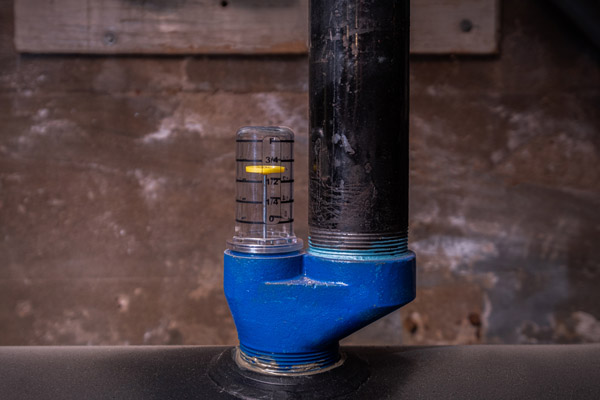
If you’ve never experienced running out of heating oil before, you might not think that preventative measures are a big deal. However, even people who are usually very careful about these things can overlook the importance of placing their order for oil on time — a problem that could be more harmful than it initially seems.
In fact, purchasing heating fuel in a timely manner is a necessity for several important reasons. The obvious inconvenience you’ll experience is that you’ll run out of hot water and your home will feel cold. Some other risks you could face if you overlook preventative measures designed to ensure your oil tank stays full are listed below.
1. Higher Heating Oil Costs
The most common time for homeowners to run out of oil is during the end or middle of winter. Unfortunately, the timing couldn’t be worse, as this is when the price for heating oil is typically at its highest. If your fuel runs out in the period from October to March, you’ll find yourself paying the highest prices of the heating season. This could add hundreds of dollars more to your annual heating costs.
Unfortunately, you’ll not only pay a higher rate for the heating oil, but you’ll also have to spend more money for an emergency fuel oil delivery rather than the lower cost of a standard fill-up. Emergency oil delivery services can cost significantly more than small fill-ups when you need them.
2. Buildup of Sludge
It’s common to find sludge and/or debris in the bottom of tanks that hold heating oil. But this sludge won’t usually cause damage to your heating system unless you let your tank get empty.
When the oil in the tank is low, sludge can get pulled into the line that carries oil to the heating system. This sludge can either clog the supply line or move through to a filter where it will partially or entirely clog the filter. Fuel lines and filters that become clogged can reduce the efficiency of your heating system or cause it to completely shut down, which will require a heating professional for service.
3. Manual Reset for Oil Heating System
Sometimes all that is necessary to reset a heating oil system once it’s run out of fuel is to simply press the reset button. However, if running out of fuel has caused the pilot light to go off, this will require it to be relit.
By law, a pilot light reset can only be done by a professional. The heating professional will change clogged filters and bleed the oil supply line; this will certainly result in a significantly higher cost than simply getting a refill of fuel oil.
How You Can Prevent Running Out of Fuel Oil
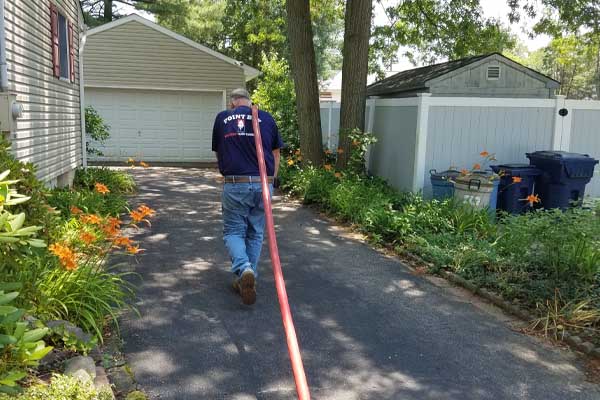
With the problems that come from running out of heating oil, why wait to take steps to ensure you’re protected? You can take proactive steps for your home’s heating needs simply by using some preventative measures to ensure your heating oil tank remains sufficiently filled throughout the year.
The rule of thumb approved by the home heating oil industry is that your oil tank should always be at least 25-30% full. Fortunately, this doesn’t mean that you’ll need to monitor oil levels constantly by manually checking how much oil you have left in the tank. With the following technologies and services, you can take steps to protect your home’s heating system without adding the stress and time of constantly monitoring your system:
Automatic Heating Oil Delivery
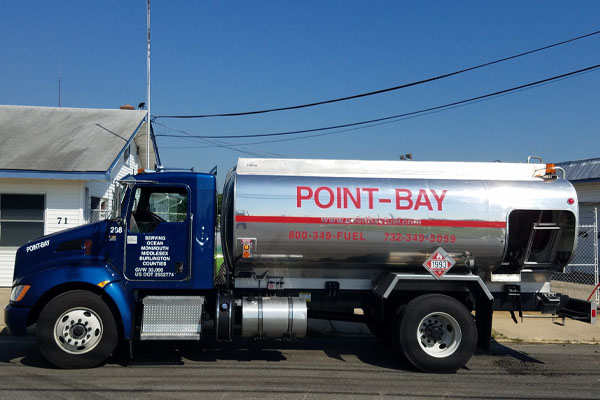
When you schedule an automatic oil delivery service, you’ll never have to worry if you’ll run out of oil.
Do you know what the best part is? You won’t have any work to do. You can forget about checking your fuel tank and trying to figure out when an oil refill should be scheduled. With a program that provides automatic delivery, you can relax and let the oil company handle it all.
When you choose automatic heating oil delivery, the oil provider will use non-invasive technology to track how much oil you’re using and estimate your heating oil needs. They’ll take into consideration your family size, your home, and will calculate heating degree day (HDD). An HDD is a measurement of the amount of energy needed to provide heat to your house based on the temperature outside.
When your oil provider is calculating HDD, they will consider the size of your fuel tank, the square footage of your home, as well as data that shows the heating needs in the surrounding area in order to determine with a very high measure of accuracy when your oil tank has reached one-quarter or so full. When that happens, they’ll contact you to schedule your next refill delivery.
Automatic Fuel Oil Delivery – Pros
- The most popular method of heating oil delivery for most oil companies is automatic delivery. It comes with a high degree of success in preventing fuel tanks from running out of oil.
- Of the various preventative measures, automatic fuel deliveries save homeowners the most money. Many oil providers offer discounted oil prices when customers sign up for automatic delivery and this can add up to significant savings.
- You don’t have to worry about being sold oil that you don’t need or want because deliveries are calculated based on your heating history as well as your unique needs.
- With non-intrusive measures of calculating your oil needs, you won’t have to concern yourself about tank monitoring software that can seem invasive.
Automatic Delivery – Cons
- One drawback of this system is that it may not take any unexpected heating needs into consideration. If you have visitors who use plenty of hot water every day, or if you are away from home on vacation and didn’t use your typical amount of heat, you will need to let the oil company know in order to have them make an adjustment to your regular delivery schedule.
- In order to get the most accurate results, you will need to commit to one supplier for a specified period of time, so you won’t have the flexibility to shop around. However, you can avoid any issues by choosing a reputable fuel oil delivery company, like Point Bay Fuel.
Smart Meters and Tank Monitoring Apps

Smart technology has made its way into just about every industry possible. Whether it’s smart thermostats and security systems or cookware and garbage bins, there seems to be no part of a home that is without advanced alternatives offered by technology. Of course, this technology is also available in the industry of heating oil with the use of smart meters for your oil tank.
A smart meter can instantly monitor the oil level in your home as well as heating costs, and oil consumption, whether you’re in your home or away on business or vacation. The smart software will send data to your computer or cellphone via a sensor that is attached to the oil tank.
Oil Tank Smart Meters – Pros
- Many systems have built-in alarms that will notify you in the event of attempted oil theft.
- Many smart alarm systems will alert you when oil levels are low, giving you ample time to schedule a delivery with your oil company.
Smart Meter For Heating Oil Tanks – Cons
- A smart meter is often one of the more expensive options for tracking oil. A smart system for monitoring your oil tank will typically cost about $100 or higher.
- There have been some reports in the media that some electricity monitoring systems on rare occasions have been off by as much as 50%. While most people who use software designed for smart oil monitoring find the system works accurately, there is potential for rare inaccuracies, so the system should be checked occasionally.
- Smart meters typically notify the user when oil levels get low, not the oil company. You will still have to contact your oil provider in order to schedule a delivery before your oil runs out.
Installing a smart meter is not a DIY project and requires professional assistance. Fortunately, if you purchase the monitor from Point Bay Fuel, they will install it for free while we are there for your annual heating system maintenance appointment. If you haven’t scheduled an oil heating system tune-up, be sure to give us a call today.
Local Fuel Oil Tank Monitors
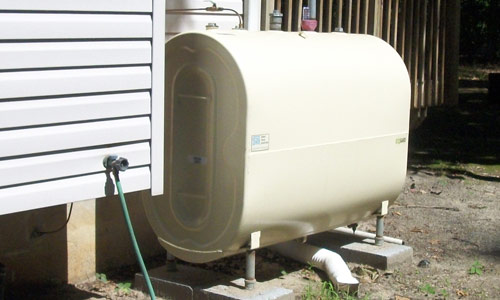
Software for local tank monitoring can be a great alternative for users who don’t use a smartphone or have another device that can connect to smart meters, but who still want the convenience of being able to check tank levels from inside their home.
Much like a smart meter, local monitors utilize a transmitter that is easily attached to your fuel tank. The sensor will then send a read-out to a local monitor, a device that is usually plugged into an outlet in your home.
Local Oil Tank Monitors – Pros
- Most monitors are easy to install by placing a sensor on your oil tank, then plugging your monitor into an electrical outlet. This system allows non-smartphone users to enjoy the convenience of a tank monitoring system with an easy read-out.
- When oil is low, the system will send an alert directly to the monitor, so you never have to guess if it’s time to call for an oil refill.
- A local tank monitor is generally more accurate than the more traditional float gauges, so they eliminate the need for dipsticks and gauges.
Local Fuel Tank Monitors – Cons
- Some monitors might require placement within a specific distance of the oil tank, this can leave you with less flexibility than automatic delivery services or smart meters. Similarly, some mobile monitors use a battery, so they can be anywhere in your home, but the majority of local tank monitors need to be plugged into an electrical outlet, limiting mobility.
- A monitoring system and tank transmitter can cost almost as much as a smart system. Like a smart meter, a local tank monitor can cost about $100.
- While you’ll get an alert letting you know when the oil tank is low, it’s still necessary to contact your oil supplier for delivery.
Alert Systems

An alert system for your oil tank is an excellent solution for anyone who wants the convenience of an alert to let them know when oil levels get low, but they don’t need the features of a local monitoring or smart system.
An alert system means you don’t pay for all those extra features. Simply install a gauge on your oil tank and it will send a low oil level alert to the receiver. The receiver will flash or beep at a set oil level, this lets you know it’s time to contact your oil provider.
Oil Tank Alert System – Pros
- Homeowners who aren’t familiar with smart technology will often find the alert system a great solution for monitoring oil levels. The receiver is a basic device that will alert you when the tank’s oil level is low, but it has no complicated interface or screen.
- Alert systems are typically inexpensive, because of their simple design, especially when compared to more expensive tank monitoring software. This type of system can be purchased for a budget-friendly price.
- Many receivers with this type of system use battery power, so they can be placed in just about any place in your home.
Alert Systems For Heating Oil Tanks – Cons
- An alarm system can let you know when oil levels are low; however, they don’t provide other important data regarding your oil usage. When you know your daily and seasonal trends, you can more accurately identify where your heating dollars are being wasted and how you can remedy the situation, but an alert system doesn’t provide this information.
- Similar to other types of tank monitoring, an alert system won’t send a low oil level message to your oil supplier. It will be up to you to contact your oil supplier to schedule an oil delivery.
Manual Check of Heating Oil Tank Levels
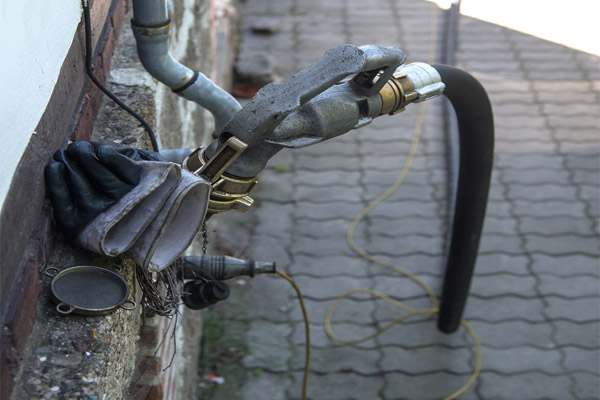
If your budget doesn’t have room for a monitoring system, it’s still necessary to keep an eye on your oil tank in order to avoid the tank running too low. Many experts discourage users from monitoring oil levels manually. But if it’s necessary, you can check the tank manually by watching the gauge and letting your oil supplier know when the tank is low.
Use a dipstick to check how full the oil tank is. Make sure to call your oil company and schedule a refill before the tank reaches the one-quarter full mark. It’s important to ensure that the oil lever never goes lower than the one-fourth mark in order to protect your tank and not run out of heating oil.
Manual Oil Tank Monitoring – Pros
There’s no doubt, manually monitoring oil is can be a cost-effective option. But it’s important to keep in mind that it might end up costing you more in the long run, especially if you don’t notice the tank is low and you need an emergency delivery.
Manual Oil Monitoring – Cons
- Even if you’re the most responsible homeowner, it can be easy to overlook checking heating oil levels. Many of the prevention methods will alert you to the need for more oil, manual monitoring will require more frequent checks. Failing to monitor often enough could lead to expensive repairs and the need for an emergency fill-up service.
- Manually monitoring oil levels is certainly the most inconvenient method, especially if your oil tank is outdoors. During the cold days of winter, you probably won’t be thrilled to have to stand outdoors in the cold in order to check oil levels in your tank.
What You Need To Do If Your Oil Runs Out
Preventative measures aren’t going to be much help if you find you’ve already run out of heating oil. Of course, it should be an indication that you need to take steps to avoid a similar problem in the future. However, your first priority when your oil runs out should be to take action to immediately get the heat back on.
If you have completely run out of heating oil, the following tips should provide a helpful guide as to what you should do:
- Call to schedule an emergency delivery of oil: An emergency oil delivery service will typically provide you with the oil fill-up you need within 24 hours or less of placing your order.
- Find a substitute way to heat your home: You might need to use diesel fuel or kerosene until your emergency service arrives with more oil. You can fill a 5-to-10-gallon container designed for transporting gasoline at the local gas station. A fireplace or space heater can also be used while you wait for your oil delivery to arrive.
- Insulate your surroundings: While you’re waiting for oil to be delivered, make sure you insulate areas in order to trap heat in your home. Close windows and doors and use weather stripping if necessary, in order to minimize any loss of heat.
Call Point Bay Fuel For Superior Heating Oil Deliveries

Point Bay Fuel offers high-quality heating oil deliveries and HVAC services in Ocean and Monmouth Counties, New Jersey. Our heating oil deliveries are fast, reliable, and affordable, and we always keep your safety in mind. We offer various heating oil delivery plans and financing options. This way, you can customize your fuel deliveries to meet your needs.
Likewise, we hire the best, certified HVAC technicians who can provide you with excellent HVAC tune-ups, repairs, installations, and replacements. Each of our techs has the knowledge and experience to service your HVAC system correctly – the first time around.
Point Bay Fuel guarantees the most competitive home comfort service costs in the area. Our maintenance services can improve your comfort and energy efficiency while reducing your home HVAC costs. If you are interested in improving your indoor air quality, then look no further. Our experts know the most advanced solutions to achieve all of your home comfort needs. All of our services are backed with a guarantee to ensure your satisfaction. To schedule an appointment, give Point Bay Fuel a call today.
Contact us now by calling (732) 349-5059 to speak to one of our home comfort specialists!
The post The Best Ways To Prevent Running Out Of Heating Fuel This Winter appeared first on Point Bay Fuel.
